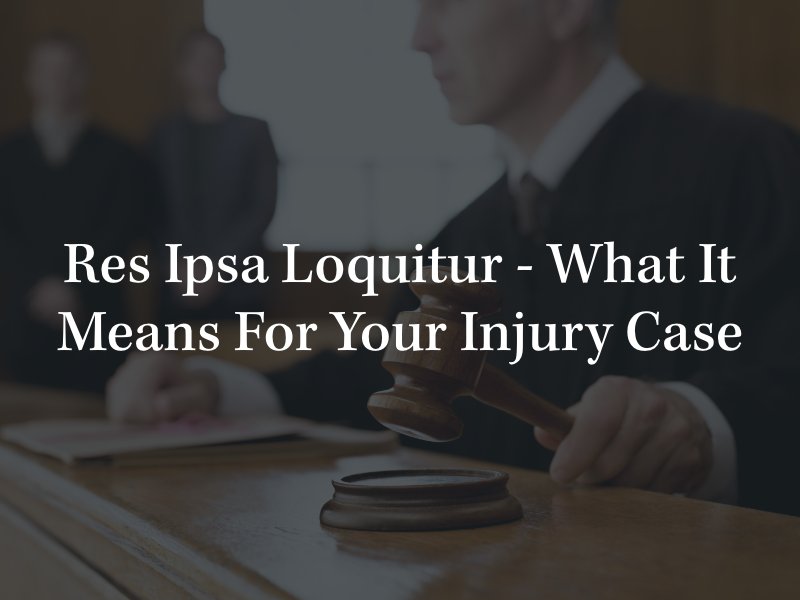Res Ipsa Loquitur is a Latin term, so do not feel bad if you don’t understand it right away. This is not a term that comes up in regular conversation. Res Ipsa Loquitur means “The thing speaks for itself,” which still does not necessarily make it any clearer, at least not without context. Here, we want to examine Res Ipsa Loquitur and discuss what this means in the legal realm, particularly in personal injury law.
What Res Ispa Loquitur Means for a Case

In personal injury law (tort law), res ispa loquitur is a doctrine used to presume a defendant’s negligence in certain circumstances, depending on the supporting evidence in the case. A plaintiff (the injury victim) can use res ispa loquitur and other circumstantial evidence to help establish what is known as a rebuttal presumption of negligence.
A rebuttal presumption is a rule of law that allows for the assumption of a fact or law based on the evidence, and this presumption means that it is not necessary to go through the process of proving the facts related to that particular circumstance. A jury or judge can simply assume the facts based on the evidence presented.
If res ispa loquitur is used in a case, the onus is on the defendant (the person alleged to have caused the injury) to provide evidence that they were not negligent. This is different from how a personal injury case would normally proceed, where the onus is typically on the plaintiff to prove the negligent actions of the defendant.
Res ispa loquitur Can be a powerful tool used by plaintiffs and their legal team in a personal injury case, but this is not an easy doctrine to assert.
Defining When Res Ispa Loquitur Is Used
The doctrine of res ispa loquitur will only be used in a personal injury case if the plaintiff or their legal team has the circumstantial evidence needed to obviously display the negligence of the defendant (i.e., the negligence speaks for itself, hence the use of res ispa loquitur).
Circumstantial evidence in a personal injury claim can be any evidence that helps a jury or judge arrive at the logical conclusion that the actions of the defendant were indeed negligent.
In order for a plaintiff to use the res ispa loquitur doctrine, we can examine three factors that the plaintiff must approve, explained by Cornell Law School:
- The incident would not have occurred if there had not been some type of negligence on the part of the defendant.
- Whatever caused the incident and injuries had to have been in the defendant’s control.
- The plaintiff must not have contributed to their own injuries in any way (absolutely no comparative negligence).
Contact an Attorney for Help Today
If you or a loved one have been injured due to the negligent or careless actions of another individual, reach out to an attorney today. A personal injury lawyer in Philadelphia can examine the facts of your case and help you move toward the path most likely to secure compensation. Your lawyer will help you use res ispa loquitur, if appropriate, in order to help you recover compensation for your losses.